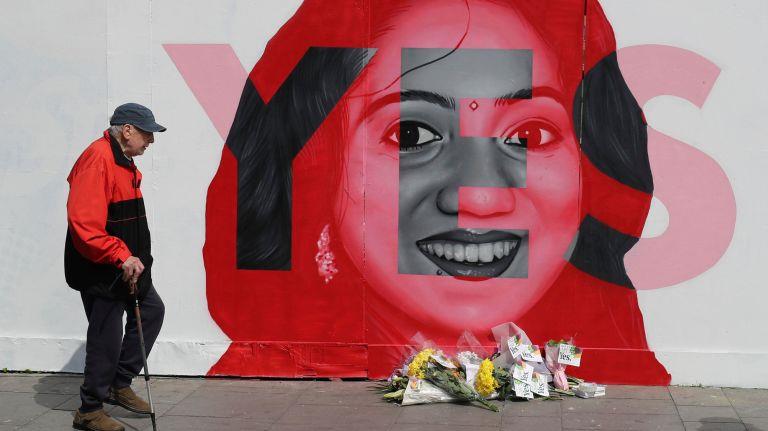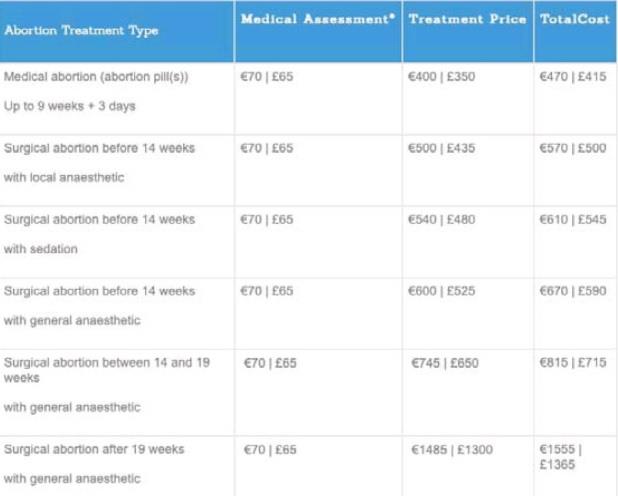As matters currently stand, abortion is illegal in Malta and is now the only country in the EU where abortion is illegal in all circumstances. Prof. Pierre Mallia, however, explained that for a long time there have been certain circumstances where abortion is accepted and carried out locally.
Mallia, a professor in family medicine, patients’ rights and bioethics at the University of Malta, says that doctors in Malta follow the principle of “double effect”, which allows for abortion if “harm to the foetus is foreseen but indirect and unintended”. He clearly says that in situations such as ectopic pregnancies, cancer of the uterus or even the administering of chemotherapy, causing harm or even death of the foetus is accepted.
He also notes that even the Church accepts that a woman has the right to harm her baby in order to receive treatment, provided that it is indirect.
At present, the Criminal Code states: “Whosoever, by any food, drink, medicine, or by violence, or by any other means whatsoever, shall cause the miscarriage of any woman with child, whether the woman be consenting or not, shall, on conviction, be liable to imprisonment for a term from 18 months to three years.”
The same punishment applies to any woman who procures her own miscarriage.

Moreover, the Criminal Code specifies: “Any physician, surgeon, obstetrician or apothecary, who shall have knowingly prescribed or administered the means whereby the miscarriage is procured, shall, on conviction, be liable to imprisonment for a term from 18 months to four years, and to perpetual interdiction from the exercise of his profession.”
So although certain abortions are de facto carried out in Malta, the law still remains that abortion is illegal, since there could be circumstances whereby the principle of double effect does not apply and the mother’s life could remain in danger, for example suicide, Mallia explains.
He gives the example of what happened in Ireland before the new laws on abortion were passed. Savita Halappanavar was denied an abortion and died as a result of a septic pregnancy. A miscarriage was inevitable in this case.

Just this Thursday, the Irish Parliament passed legislation to allow abortions following a referendum earlier this year. The new legislation permits terminations to be carried out up to the 12th week of pregnancy or in conditions where there is a risk to the life, or of serious harm to the health, of the pregnant woman.
It would also allow terminations in cases of foetal abnor- mality that could lead to the death of the foetus either before or within 28 days of birth.
In fact, double effect has a weakness because it is not clear what is considered direct and so “we cannot give it as a tool to medical practitioners”, Mallia explains. “This is why there should be a law that states that if the mother’s life is in danger, then she has a right to decide,” he says.
Surprisingly, Mallia says that he is against abortion and believes that, from a purely biological point of view, life begins with the fertilisation of the first cell. However, he explains that most people believe that the moral value of a foetus starts when there is a form or primitive brain, adding that “killing a newborn baby is not the same as killing one cell.”
When it comes to the health of the mother being at risk, as opposed to a life-threatening situation, this can constitute a broad spectrum, which is where the real debate begins, Mallia explains. Here there is a balancing act between the rights of the woman and the rights of the foetus.

“What right do I, or anyone else, have to tell you to remain pregnant, irrespective of the reason?” he says. Mallia believes that the choice should remain with the woman although, of course, one can appeal to the woman, telling her that she has a human life inside her. An appeal should be made to the mother to think about it properly, how it would affect her, how she would feel about it if, in five years time, she sees a five year-old child.
Although he believes that society should not dictate what the woman should do, Mallia insists that society can draw a line and that certain limitations should be imposed. “If any right is extended to the mother, there should be a stipulated time beyond which one cannot kill an embryo that has developed beyond a certain stage.” He says that after six to eight weeks, the woman would lose her chance to make the choice, unless her life is threatened.
Furthermore, mothers who repeatedly – even twice – return for an abortion should be counselled and, in extreme cases, may have this right revoked by law, unless there are mental disorders which need to be treated, Mallia says.
Religions ought to continue having the right to teach according to their moral values. It is important that these values are taught holistically, even when it comes to how people handle their social life in order to protect themselves from situations where things can get out of control.”
Mallia also agrees that sex education should be compulsory in schools, including the prevention of pregnancy through abstention, barrier methods or contraception. He says that requests for an abortion should be handled by competent family doctors who, according to RCGP CSA assessment, need to make their evaluation bearing in mind the history of the woman, which includes whether she has considered other options such as adoption. The woman’s social background should also be considered and she should be asked if she thinks she may suffer psychologically in the future.
“Ultimately, the decision is hers – both morally and legally. The legal element ought to be considered in view of the fact that a good majority of countries allow this. Whilst values are not a statistic, you cannot ignore the fact that most people agree with abortion and Malta remains the only country in the EU not to allow it.”

Although abortion is illegal in Malta, it is acknowledged that women can obtain an abortion by going to another country. Earlier this year, AD chairperson Carmel Cacopardo said that some 300 to 400 Maltese women go abroad for an abortion every year. He also said that the only official figures that exist are from the UK, which show that approximately 60 Maltese woman travel there each year for an abortion.
It is also a fact that others resort to what are termed ‘backstreet abortions’ – an unsafe procedure carried out by people lacking the necessary skills or in a sub-standard medical environment. The reason for this is that abortions tend to cost a lot of money. A quick look at abortion clinics in the UK shows that the cost of an abortion ranges from approximately €600 to over €1,500, depending on the stage of the pregnancy.
Government and PN views on introduction abortion laws
Whilst the PN the noted that it has an unequivocal stand on abortion, the Ministry for European Affairs and Equality simply stated: “The government does not have the mandate to introduce abortion.”
Several other questions, including the government’s views on abortion, whether the government is open to debate the subject and what should be done if a mother’s life is in danger were put to the Ministry but the only statement was the one shown above.
On the other hand, PN MP Claudio Grech said: “The PN has an unequivocal stand on abortion. We cherish life from its very beginning and as such we do not shy away from standing up for life in all its stages, not the least that of the unborn child.”
When questioned about contraception, however, he said: “In my view, the use of contraceptive methods is a personal choice that everyone has the right to make for themselves without politicians interfering.”
Grech went on to say: “I am not aware of any medical professional who has – either by design or de facto – carried out an abortion to save a mother’s life. Insofar as I am aware, there is a clear protocol that obliges medical professionals to strive to save the lives of both the mother and the baby. Even if the clinical circumstances resulted in the baby’s life being lost, this would never be the outcome of a deliberate choice by the medical professional to abort the baby.
“These circumstances already arise today and medical professionals have an established protocol on how to deal with them in accordance with their Hippocratic Oath and ethical compass. No one has the right to play God with the life of others and I am confident that Maltese medical professionals meticulously follow these established protocols with the supreme aim of saving lives and not choosing which one to let go,” he concluded.
Professor Mallia spoke in his own personal capacity and was not representing any of the bodies that he chairs.